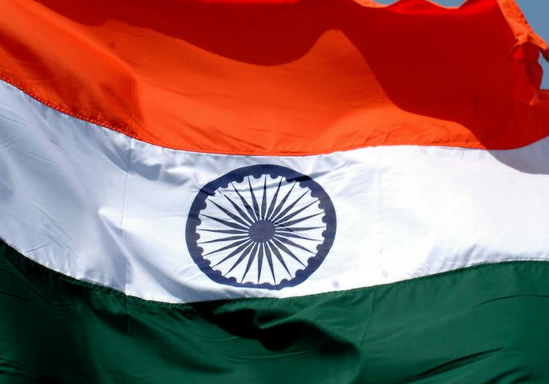
May 20, 2019 | Advocacy, News
The ICJ has made a submission to Ms. Karima Bennoune, the United Nations Special Rapporteur in the field of cultural rights (“Special Rapporteur”) in response to a call for submission, in advance of her forthcoming report to the General Assembly on how actors from across the cultural ecosystem access and use public spaces and the impact this has on their cultural rights.
ICJ’s submission draws on its ongoing work on the human rights of LGBTQ persons in India and includes findings from the ICJ’s forthcoming report on the rights of LGBTQ persons in the home, at work and in public spaces. The ICJ, concludes that LGBTQ persons’ rights to adequate housing, decent work, and equal access to public spaces are frequently violated throughout India.
The interviews conducted by the ICJ reveals that LGBTQ persons have challenges in accessing a variety of public spaces including streets, public transport, sanitation facilities, cultural and religious events, parks and shopping malls, challenges which are not faced by, or not faced in the same way by, non-LGBTQ persons. The ICJ submits that these findings are in contravention of Indian constitutional law and international human rights law.
Read the full submission here.
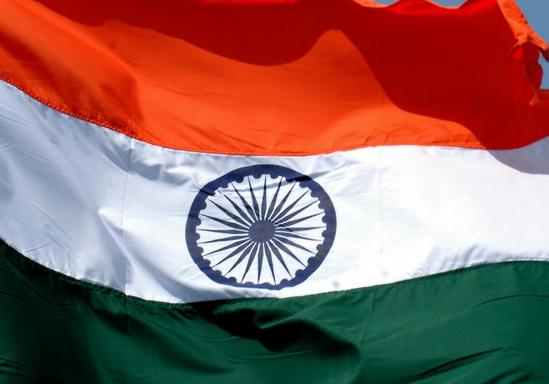
Feb 28, 2019 | Advocacy, News
The ICJ made a submission to Mr. Léo Heller, the United Nations Special Rapporteur (Special Rapporteur) on the human rights to water and sanitation, in response to a call for submission in advance of the Special Rapporteur’s 2019 Human Rights Council Report on the human rights to water and sanitation in spheres of life beyond the households, in particular in public spaces.
The ICJ’s submission focuses on the status and the impact of inadequate access to water and sanitation on lesbian, gay, bisexual, transgender and queer individuals (LGBTQ), and more specifically on transgender persons and non-binary persons, in India.
ICJ’s submission draws on its ongoing work on the human rights of LGBTQ persons in India, where from 2017 to date, the ICJ has studied LGBTQ persons’ access to and enjoyment of economic, social, and cultural rights, focusing on access to adequate housing, decent work, and public spaces and services including water and sanitation. The goal is to reveal, address, and reduce discriminatory treatment against LBGTQ persons in accessing economic, social and cultural rights as a result of discriminatory laws and practice through advocacy with the Indian State and with the United Nations.
Read the full submission here.
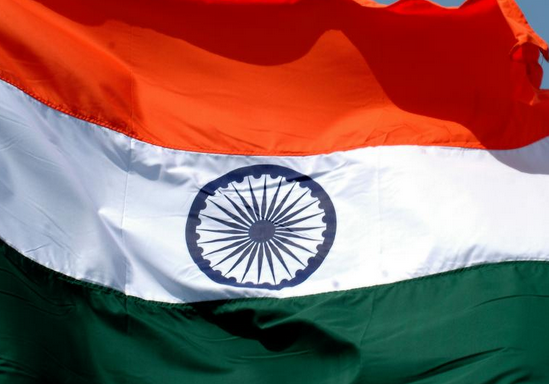
Dec 19, 2018 | News
The Transgender Persons (Protection of Rights) Bill, 2018 fails to protect the human rights of transgender people as guaranteed under the Indian constitution and international law and standards and must not be passed in its present form by the Rajya Sabha.
The Bill was passed by the Lok Sabha (Lower House of Indian Parliament) on 17 December, 2018. The next step in order for the Bill to progress is for the Rajya Sabha (Upper House of Indian Parliament) to pass it.
The ICJ considers this Bill to be a missed opportunity to address the serious problem of discrimination against transgender people in India. The ICJ calls for the rejection of its problematic parts by the Rajya Sabha and for the elaboration of a revised Bill in line with rights upheld by the Indian Supreme Court and India’s obligations under international law.
The 2018 Bill, if adopted, would effectively deny to most transgender people their right to self-identification, by providing an overly complex bureaucratic procedure requiring an individual’s application for a transgender certificate to be approved by two different sets of authorities, despite earlier widespread condemnation of this process by the transgender community.
“As the ICJ reported in 2017, the transgender community is continually harassed, stigmatized, and abused by the police, judges, their family and society. This Bill, if it becomes law would further serve to facilitate and compound human rights violations against people from a marginalized community”, said Ian Seiderman, Legal and Policy Director at the ICJ.
The Bill has also introduced mandatory sex reassignment surgery for those transgender people who seek to identify their gender within the binary (male/female) framework. This requirement would be in contravention of the Supreme Court’s judgment in NALSA v. UOI, which guarantees the right to self-identification without the need for medical intervention.
Further, the Bill would collapse all offences against transgender people into one provision which includes offences ranging from “sexual abuse” and “physical abuse”, to “compel[ing] or entice[ing] a transgender person to indulge in the act of begging” among others. These crimes have not been defined in the Bill.
It also would provide for the same six-month to two-year sentence for all offences against transgender people. In some cases, this could be a significantly lighter sentence than when the same crime is committed against others, including discriminated groups such as cis-gendered women, under the general criminal law. In addition, the identification of “beggary” as an offence under the Bill is problematic since for many transgender people in the country, it remains one of the limited livelihood opportunities.
Further, the Bill does not address the question of reservations in employment and education despite specific directions by the Supreme Court in NALSA v. UOI.
Lastly, while the proposed law guarantees the right to non-discrimination to transgender people against persons, state and private sector bodies, it does not provide a definition of discrimination, nor does it provide an enforcement mechanism for ensuring transgender people’s right to non-discrimination.
The ICJ calls on the Rajya Sabha to substantially revise the problematic provisions of the Bill before resubmitting it for parliamentary consideration.
Background
The provisions identified above do not accord with protection of the rights of transgender people to equality, non-discrimination, equal protection of the law, enshrined in the Constitution and international law, including the International Covenant on Civil and Political Rights, which India ratified in 1979. Further, they are incompatible with international standards such as the Yogyakarta Principles on the application of international human rights law in relation to sexual orientation and gender identity.
The ICJ, as part of SAATHII Vistaara Coalition, earlier this year drafted a Briefing Paper on India: Legal and Jurisprudential Developments on Transgender Rights, SAATHII Vistaara Coalition. The paper analyses in detail the domestic judicial developments on transgender rights as well as the legislative process undertaken until the Transgender Persons (Protection of Rights) Bill, 2018 was passed on 17 December 2018.
Additional Reading Material
- ICJ Briefing Paper on The Transgender Persons (Protection of Rights) Bill, 2016, analyzes the 2016 Bill, its shortcomings, and India’s international obligations, as it is the basis of the 2018 Bill.
- ICJ Briefing Paper on Implementation of NALSA Judgment discusses the 2014 April NALSA decision that affirmed that transgender people have the right to decide their self-identified gender. The paper analyses the responsibilities placed on Indian authorities, gaps in implementation, and India’s relevant international law obligations.
Contact
Maitreyi Gupta (Delhi), ICJ International Legal Advisor for India
e: maitreyi.gupta(a)icj.org, t: +91 7756028369
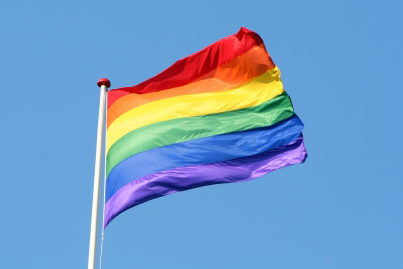
Sep 6, 2018 | News
The ICJ welcomed the Supreme Court’s judgment in Navtej Singh Johar et al v. Union of India and others, which effectively ends the threat to a large segment of the Indian population that they will be held criminally liable for exercising their human rights.
The Court has issued a long-overdue ruling that the criminalization of consensual same-sex relationships under Section 377 violates the Indian Constitution, and is in breach of India’s obligations under international law. This long-awaited judgment testifies to the work of activists and lawyers in India, who have shown the potential of the law to affirm human rights and equality.
“This judgment will not only have an impact in India. Its influence should extend across the world. The ICJ hopes that it will provide an impetus for other countries, especially those of the Commonwealth of Nations, to revoke similar provisions that criminalize consensual sexual relations,” ICJ Asia Pacific Director Frederick Rawski stated.
The Court underscored that provisions of Section 377 contravened international law and standards on equality, privacy, non-discrimination and dignity guaranteed in international human rights treaties to which India is a party. These include the International Covenant Civil and Political Rights and International Covenant on Economic Social and Cultural Rights.
The Court also noted that the Yogyakarta Principles, which address sexual orientation and gender identity in international law, reinforce these protections. This is a vital jurisprudential recognition that LGBTI persons are entitled to full equality, and protection of their rights under India’s Constitutional and international human rights law.
In the judgement, which reverses the December 2013 Koushal decision, the Court held that discrimination based on sexual orientation is a violation of fundamental rights to autonomy, privacy, equality, dignity, and non-discrimination. It underscored that decriminalization of homosexuality is only the first step and that LGBTI persons are entitled to equal citizenship in all its manifestations. The Court also recommended that wide publicity be given to judgment to ensure de-stigmatization of identity through sensitization training on barriers to access to justice faced by LGBTI persons.
“Even a landmark decision by the Indian Supreme Court cannot alone end the discrimination against people based on their sexual orientation or gender identity. It is time for the Indian Parliament to conduct wide-ranging review of existing legal framework, repeal discriminatory laws, and address other gaps in the law that prevent LGBT persons from fully exercising their rights,” Rawski added.
Background
For background, see the ICJ’s July 2018 Briefing Paper on Navtej Singh Johar et al. v. Union of India and Others, and its February 2017 report, “Unnatural Offences”: Obstacles to Justice in India Based on Sexual Orientation and Gender Identity.
Contact
Maitreyi Gupta (Delhi), ICJ International Legal Advisor for India
e: maitreyi.gupta(a)icj.org, t: +91 7756028369
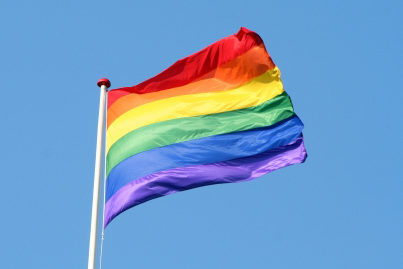
Sep 6, 2018 | Communiqués de presse, Nouvelles
La CIJ s’est félicitée de l’arrêt rendu par la Cour suprême dans l’affaire Navtej Singh Johar et al v. Union of India and others. Cet arrêt met fin à la crainte d’une grande partie de la population indienne d’être tenue pénalement responsable de l’exercice de ses droits.
La Cour a rendu la décision, attendue depuis longtemps, que la criminalisation de relations consenties entre personnes du même sexe enfreint l’article 377 la Constitution indienne, et est contraire aux obligations de l’Inde envers le droit international.
Ce jugement tant attendu témoigne du travail des activistes et des avocats en Inde, qui ont démontré le pouvoir de la loi pour réaffirmer les droits de l’Homme ainsi que l’égalité.
«Ce jugement aura non seulement un impact en Inde mais son influence devrait s’étendre à travers le monde. La CIJ espère que cela incitera d’autres pays, en particulier ceux du Commonwealth, à révoquer des dispositions similaires qui criminalisent les relations sexuelles consenties », a déclaré le directeur de la CIJ pour l’Asie-Pacifique, Frederick Rawski.
La Cour a souligné que les dispositions de l’article 377 contrevenaient au droit international et aux normes internationales en matière d’égalité, de respect de la vie privée, de non-discrimination et de dignité garantis dans les traités internationaux relatifs aux droits de l’Homme auxquels l’Inde est partie prenante.
Il s’agit notamment du Pacte international relatif aux droits civils et politiques et du Pacte international relatif aux droits économiques, sociaux et culturels.
La Cour a également relevé que les Principes de Yogyakarta, qui traitent de l’orientation sexuelle et de l’identité sexuelle en droit international, renforcent ces protections.
Il s’agit d’une reconnaissance jurisprudentielle essentielle selon laquelle les personnes LGBTI ont droit à la pleine égalité et à la protection de leurs droits en vertu du droit constitutionnel indien et du droit international des droits de l’Homme.
Dans l’arrêt, qui annule la décision Koushal de décembre 2013, la Cour a estimé que la discrimination fondée sur l’orientation sexuelle est une violation des droits fondamentaux à l’autonomie, à la vie privée, à l’égalité, à la dignité et à la non-discrimination.
Elle a souligné que la dépénalisation de l’homosexualité n’est qu’un premier pas et que les personnes LGBTI ont droit à une citoyenneté égale dans toutes ses formes.
La Cour a également recommandé qu’une large publicité soit accordée au jugement afin de garantir la dé-stigmatisation de l’identité sexuelle grâce à une formation de sensibilisation sur les obstacles à l’accès à la justice rencontrés par les personnes LGBTI.
«Même une décision historique de la Cour suprême indienne ne peut à elle seule mettre fin à la discrimination à l’égard des personnes en raison de leur orientation sexuelle ou de leur identité sexuelle. Il est temps pour le Parlement indien de procéder à un examen approfondi du cadre juridique existant, d’abroger les lois discriminatoires et de remédier aux autres lacunes de la loi qui empêchent les personnes LGBT d’exercer pleinement leurs droits », a ajouté M. Rawski.
Pour plus d’informations (disponibles uniquement en anglais):
Briefing Paper on Navtej Singh Johar et al. v. Union of India and Others (ICJ, July 2018)
Unnatural Offences”: Obstacles to Justice in India Based on Sexual Orientation and Gender Identity (ICJ, February 2017)
Contact
Maitreyi Gupta (Delhi), conseillère juridique internationale de la CIJ en Inde, e: maitreyi.gupta(a)icj.org, t: +91 7756028369









